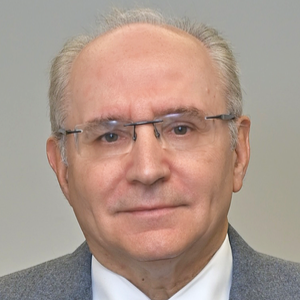As the cost for home care services has dramatically increased, eligibility for the Medicaid home care program has become of greater importance to seniors and the disabled. It is not unusual for privately paid home care services to cost eight to ten thousand ($8,000 – $10,000) per month for twelve (12) hours of care per day, and approximately $14,000 per month for twenty-four (24) hours of care.
In early October of 2020, due to the Covid-19 pandemic, the federal government renewed the Public Health Emergency for an additional ninety (90) days, effective October 23, 2020. Having done so, the NYS Department of Health (DOH) in compliance with enhanced Federal Medicaid funding requirements pushed back Medicaid’s home care lookback period from the original start date of October 1, 2020 to April 1, 2021. This was subsequently pushed back several more times, and presently the effective date appears to be October 1st, 2022 (or possibly later).
Thus, under current rules, one can transfer assets (make non-exempt transfers/gifts) before October 1, 2022, without any penalty and/or lookback period if they apply for home care Medicaid before October 1, 2022. However, if an application for home care Medicaid is made on or after October 1, 2022, and a non-exempt transfer/gift was made on or after October 1, 2020, the thirty (30) month lookback and penalty period will be applicable. This is of great importance to those who were unable to transfer assets before October 1, 2020 and require Medicaid home care services after October 1, 2022. It should be noted that a non-exempt transfer will still create the sixty (60) months (5 years) lookback period for nursing home Medicaid.
The new rules have also left “spousal refusal” untouched. Thus, a married person can still transfer assets to their spouse and if the spouse has assets and/or income above the permitted allowance amounts, known as the Community Spouse Resource Allowance, the spouse can execute a spousal refusal, allowing the ill spouse to be financially eligible for Medicaid. While this is advantageous if a married person needs Medicaid home care and/or Medicaid nursing home coverage, spousal refusal permits the Department of Health (DOH) to sue the refusing spouse for the value of the services provided by Medicaid.
The other option still available for a single person with resources above the permitted amount ($16,800 for 2022) is to implement a Medicaid Crisis Plan, where approximately half of their resources will be used to pay for their home care (after the implementation of the new lookback period) and the other half is protected by gifting to a third party.
Irrespective of one’s marital status, the changes in the rules illustrate the need for seniors and the disabled to be proactive in making asset transfers, and the importance of starting both the thirty (30) month lookback period for Medicaid home care and the sixty (60) month lookback period for Medicaid nursing home well in advance of their needing care. Without non-exempt transfers being made, the clock never begins to run and the ability to shelter one’s assets from the cost of long-term care becomes significantly more difficult, resulting in a greater percentage of one’s life savings remaining exposed to the cost of care.
As if the delay in implementing the 30-month lookback period for Medicaid home care has not created enough uncertainty for seniors, the disabled and elder law attorneys, New York is now also in the process of changing how applicants are assessed for care pursuant to Chapter 56 of the Laws of 2020.
The aforestated authorized New York’s Department of Health (DOH) to contract with an entity to conduct an “independent assessment process” of the applicant.
DOH contracted with Maximus Health Services a/k/a NY Medicaid Choice to implement NY’s Independent Assessor (NYIA) review process. The NYIA review process commenced on May 15, 2022. However, for these requesting an expedited assessment for “immediate need” care, the starting date is scheduled for July 1, 2022.
This significantly changes how assessments for home care services are performed. Previously, an assessment was done by the managed long-term care provider who determined how many hours of care would be covered by Medicaid services. Now, Maximus will do all initial nursing assessments and local districts will perform all routine and non-routine re-assessments for personal care and the consumer directed personal assessment program (CDPAP).
CDPAP allows the personal care to be provided by friends, family (with the exception of one’s spouse and the parents of a minor) or third parties with the consumer/applicant assuming the responsibility for hiring/firing, training and back-up for the aide. The aide is paid by Medicaid for the number of hours of care approved at the Medicaid rate of approximately $15.00 to $16.00 dollars per hour.
If the applicant needs more than twelve (12) hours per day of care, the applicant needs to be referred to the independent review panel (IRP) which is also run by Maximus.
As you can see NY Medicaid Choice will be running the show, which may make it more difficult to obtain the maximum (or requested) number of hours of care to be approved. All applicants must contact Maximus to schedule their initial assessment. After the initial assessment is completed then there is a clinical appointment to determine if the applicant is self-directing and can safely receive care in the community. The clinical appointment is conducted by an Independent Practitioner Panel (IPP) and an examination is done by a Maximus physician (not the client’s treating physician), physician’s assistant or nurse practitioner, who will prepare a Doctor’s Order.
A point of significant concern is that the IPP may determine that the applicant needs significant hours of care (12 or more) per day and is not “medically stable” and able to “safely” remain in the community. Once both evaluations are complete, an outcome notice is sent to the applicant, which advises them as to their eligibility for home care services and their managed long term care options.
If one is found to be ineligible or if one believes the hours of care approved are inadequate, they will be able to request a fair hearing before an administrative law judge.
As you can see, the Medicaid home care application and approval process is now significantly more complex than in the past, and it is now much more important that applicants have the advice of experienced legal counsel to assist them with the application and the inevitable fair hearings that may be necessary as to the amount of care approved.
Anthony J. Enea is a member of Enea, Scanlan and Sirignano, LLP of White Plains, New York. He focuses his practice on Wills, Trusts and Estates and Elder Law. Mr. Enea is the Past Chair of Elder Law and Special Needs Section of the New York State Bar Association (NYSBA), and is the past Chair of the 50+ Section of the NYSBA. Mr. Enea is the Past President and Founding member of the New York Chapter of the National Academy of Elder Law Attorneys (NAELA). Mr. Enea is the President of the Westchester County Bar Foundation and a Past President of the Westchester County Bar Association. Mr. Enea can be reached at 914-948-1500 or at a.enea@esslawfirm.com. Mr. Enea wishes to acknowledge the assistance of firm member Samantha Lyons, Esq., with the research for this article.





















